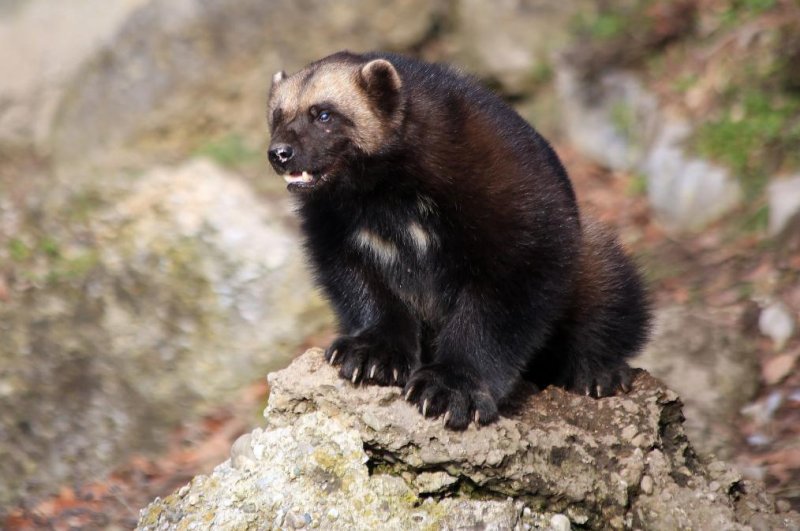The wolverine is one of several European species that may be unable to relocate as climate change continues to shrink their habitat. Photo by Manfred Werner/Tsui/
Wikimedia
May 17 (UPI) -- As previous studies have shown, many animal populations have shifted as a result of climate change. But not all species have habitats available for relocation.
A new survey of climate-threatened mammals in Europe suggests nearly half -- 30 of the 62 mammal species -- are without the traits necessary to adapt to and colonize new types of habitats.
The group hemmed in by a rapidly warming climate includes wolverines, Eurasian elk, Iberian wild goats and Pyrenean chamois.
"Some species that will need to move long distances due to climate change are simply not going to be able to," Regan Early, a researcher at the University of Exeter's Center for Ecology and Conservation, said in a news release. "Unfortunately, many of the species most at risk from climate change will also have the most difficulty in colonizing new areas."
Scientists focused on two keys to relocation: whether or not a species is a generalist, and a species' reproductive strategy.
Mammals that are generalists, capable of living in a wide variety of habitats and taking advantage of a wide variety of food resources, are more likely to be able to adapt to and colonize new territory. Mammal species that breed young and produce more offspring are also more likely to successfully relocate.
But even mammals capable of adapting to new habitats could be out of luck. For some, a suitable habitat is simply too far away from their current location.
Models suggest the Western Mediterranean mouse's current home in Spain and Portugal is likely to become inhospitable as a result of climate change. The mouse would be better off in eastern Italy, simulations show. But such a migration would be near impossible for the small rodent.
Researchers published their findings in the journal Diversity and Distributions.
"If you look at the challenges of shifting ranges, you find that many species are a lot more threatened by climate change than we previously understood," said researcher Lisbeth Morrison. "Even under lower estimates of climate change, we found really serious effects for many species."















